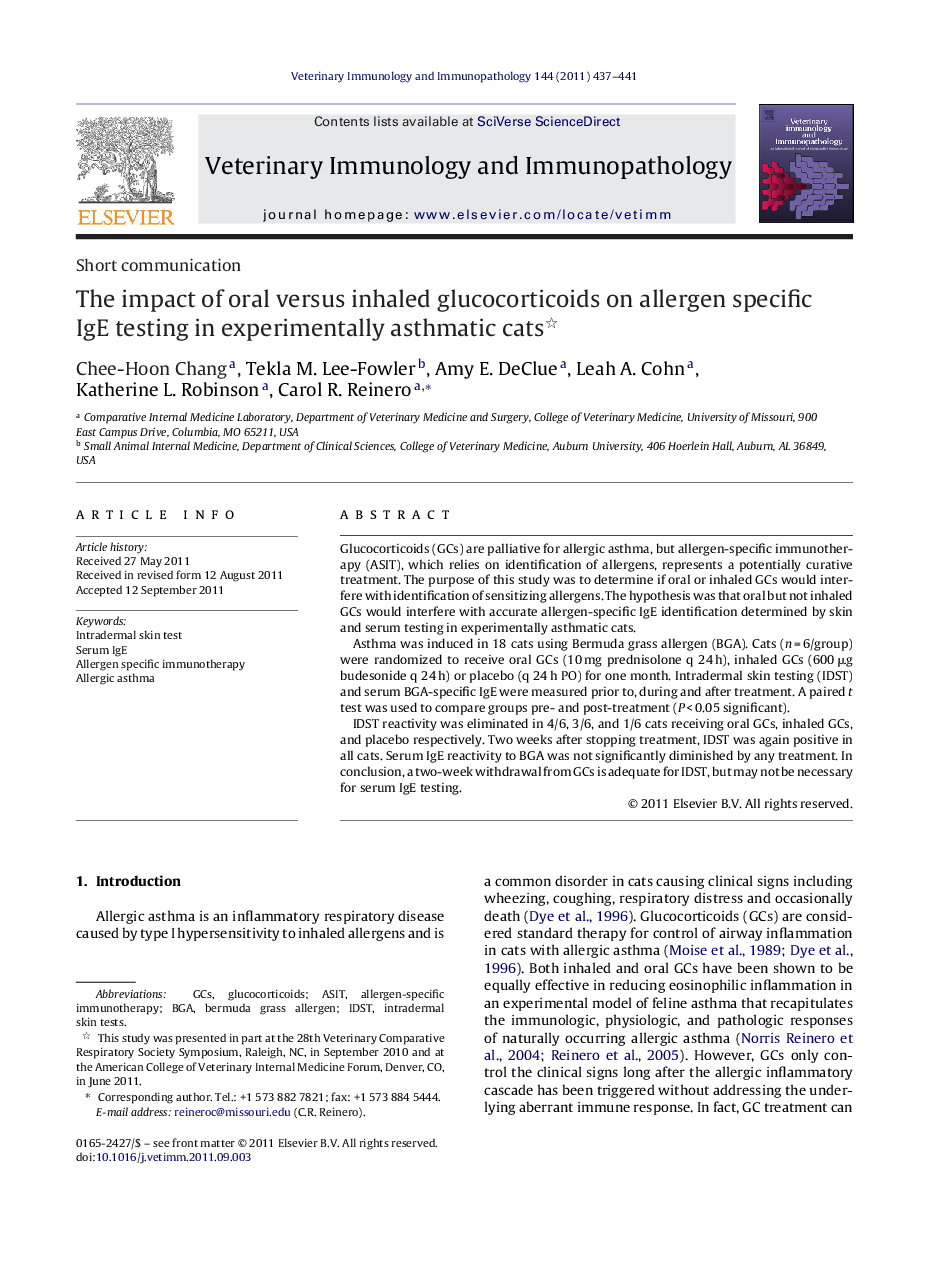| Article ID | Journal | Published Year | Pages | File Type |
|---|---|---|---|---|
| 2462025 | Veterinary Immunology and Immunopathology | 2011 | 5 Pages |
Glucocorticoids (GCs) are palliative for allergic asthma, but allergen-specific immunotherapy (ASIT), which relies on identification of allergens, represents a potentially curative treatment. The purpose of this study was to determine if oral or inhaled GCs would interfere with identification of sensitizing allergens. The hypothesis was that oral but not inhaled GCs would interfere with accurate allergen-specific IgE identification determined by skin and serum testing in experimentally asthmatic cats.Asthma was induced in 18 cats using Bermuda grass allergen (BGA). Cats (n = 6/group) were randomized to receive oral GCs (10 mg prednisolone q 24 h), inhaled GCs (600 μg budesonide q 24 h) or placebo (q 24 h PO) for one month. Intradermal skin testing (IDST) and serum BGA-specific IgE were measured prior to, during and after treatment. A paired t test was used to compare groups pre- and post-treatment (P < 0.05 significant).IDST reactivity was eliminated in 4/6, 3/6, and 1/6 cats receiving oral GCs, inhaled GCs, and placebo respectively. Two weeks after stopping treatment, IDST was again positive in all cats. Serum IgE reactivity to BGA was not significantly diminished by any treatment. In conclusion, a two-week withdrawal from GCs is adequate for IDST, but may not be necessary for serum IgE testing.
